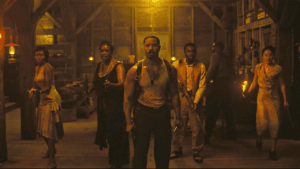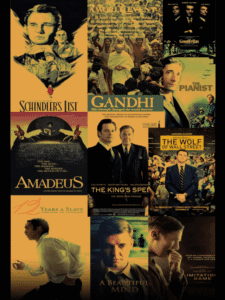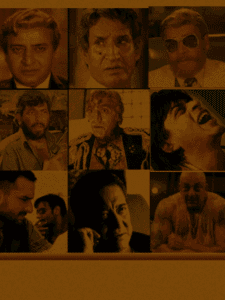Artificial Intelligence (AI) has long been viewed with both fascination and caution. But in 2025, a clear shift is taking place: AI in cinema is no longer just a buzzword. It is a force actively reshaping the global film industry—from Hollywood studios to regional Indian cinemas, from big-budget franchises to experimental indie productions.
 Legendary filmmaker James Cameron’s recent reversal on AI has crystallized this shift. Once a vocal skeptic of generative AI’s role in filmmaking, Cameron now believes it can be a game-changing tool. Speaking on Meta CTO Andrew Bosworth’s podcast Boz to the Future, Cameron emphasized how AI could streamline visual effects workflows without threatening human jobs. “That’s how humans learn too,” he said, addressing concerns about copyright and training data. Cameron, now on the board of Stability AI (the company behind Stable Diffusion), represents a broader industry trend: resistance is giving way to curiosity, and in many cases, to full-blown adoption.
Legendary filmmaker James Cameron’s recent reversal on AI has crystallized this shift. Once a vocal skeptic of generative AI’s role in filmmaking, Cameron now believes it can be a game-changing tool. Speaking on Meta CTO Andrew Bosworth’s podcast Boz to the Future, Cameron emphasized how AI could streamline visual effects workflows without threatening human jobs. “That’s how humans learn too,” he said, addressing concerns about copyright and training data. Cameron, now on the board of Stability AI (the company behind Stable Diffusion), represents a broader industry trend: resistance is giving way to curiosity, and in many cases, to full-blown adoption.
From West to East: A Global Transformation
The influence of AI in film isn’t restricted to big names or major Western markets. Across the world, AI is finding unique applications tailored to local needs and creative traditions.
In Hollywood: Upgrades, Not Replacements
AI is being used to refresh and reimagine classics in unprecedented ways. Google recently collaborated with Sphere Entertainment to present The Wizard of Oz in a new AI-enhanced format. Using Veo 2 and Imagen 3, Google upscaled visuals, extended backgrounds, and inserted digitally recreated off-screen characters. The result: a 1939 film that feels simultaneously classic and cutting-edge, tailored for the immersive dome screen of Las Vegas’ Sphere.
AI is also enabling entire films to be created independently. DreadClub: Vampire’s Verdict, released in 2024, is the first fully AI-generated animated feature. Created by filmmaker Hooroo Jackson on a budget of just $400, the film used AI for character design, voice synthesis, and music—proving that the barrier to entry in cinema is being radically lowered.
In India: From Mammootty to Ajay Devgn

India is emerging as one of the most dynamic centers for AI experimentation in cinema. The Malayalam film industry, known for pushing creative boundaries, has taken early steps in integrating AI. Films like Rekhachithram digitally de-aged superstar Mammootty using AI. While the results weren’t flawless, they demonstrated how regional industries could adopt high-tech tools for storytelling on limited budgets.
Another film, Gaganachari, used AI tools to visualize its dystopian narrative, relying on generative visuals and virtual production techniques.
Meanwhile, Bollywood’s heavyweights are also entering the AI arena. Ajay Devgn, actor-director-producer, recently launched Prismix, a new-age studio committed to AI-driven content creation. Backed by Varun Mathur of Veative Group, Prismix is investing in GenAI to develop tools for script ideation, content workflows, and personalized content delivery. This marks a bold shift for mainstream Indian cinema, positioning AI not as a gimmick but as a core part of future strategies.
Democratizing Creativity: The Financial Upside
One of the biggest promises of AI in cinema is its ability to cut costs and level the playing field. Traditional filmmaking is expensive, requiring large teams, long timelines, and high-end infrastructure. AI changes that.
Companies like Runway, creators of the Gen-2 video platform, recently raised $308 million to accelerate AI filmmaking tools. Their vision? Make video production as fast and fluid as live TV. With tools for real-time video generation, text-to-video conversion, and intelligent editing, AI platforms are reducing both the time and cost of bringing ideas to life.
Studios like Promise, backed by Peter Chernin and Andreessen Horowitz, are betting on an AI-first model of content creation. Rather than relying on traditional studio financing and distribution, they aim to use AI to generate shows from script to screen—streamlining every step of the pipeline.
The Oscars Step In: Time for Transparency
As AI permeates more aspects of filmmaking, questions of ethics, transparency, and creative integrity are rising. In response, the Academy of Motion Picture Arts and Sciences is now considering making AI usage disclosures mandatory by the 2026 Oscars. While such disclosures are currently optional, the Academy’s SciTech Council is drafting language to enforce transparency.
This move comes after backlash over AI use in Oscar-nominated films like The Brutalist and Emilia Perez. Critics argue that uncredited AI-generated work could undermine human creativity. Mandatory AI disclosure would be a step toward preserving trust while embracing technological evolution.
Artistic Integrity vs Innovation: Finding the Balance
As promising as AI is, it also raises complex questions. Will AI dilute the emotional depth of human performance? Can AI-generated scripts and characters evoke the same resonance as those developed through lived experience?
Filmmakers like Brett Stuart of Staircase Studio insist that AI should enhance, not replace, the role of actors and technicians. His short film The Woman with Red Hair blends AI and live performance to great effect, proving that hybrid models can retain emotional richness.
Others, like the Russo Brothers at AGBO Studios, see AI as a critical tool for future-proofing the industry. They’re using AI not just for visual effects but to help storytellers regain creative control in a crowded digital ecosystem.
What Lies Ahead
The future of filmmaking with AI is not one of domination, but of collaboration. The tools are powerful, but the intention behind them matters more. AI can reduce costs, increase access, and open creative doors—but it must be used consciously.
As more filmmakers, studios, and even film festivals embrace AI, we are likely to see new genres, new aesthetics, and new forms of storytelling. For audiences, this means more diverse and dynamic cinema. For creators, it means more possibilities with fewer barriers.
From James Cameron’s endorsement to Ajay Devgn’s investments, from Malayalam indie filmmakers to Hollywood’s biggest studios, AI is no longer knocking on cinema’s door. It’s already in the editing room.
Read More:

























